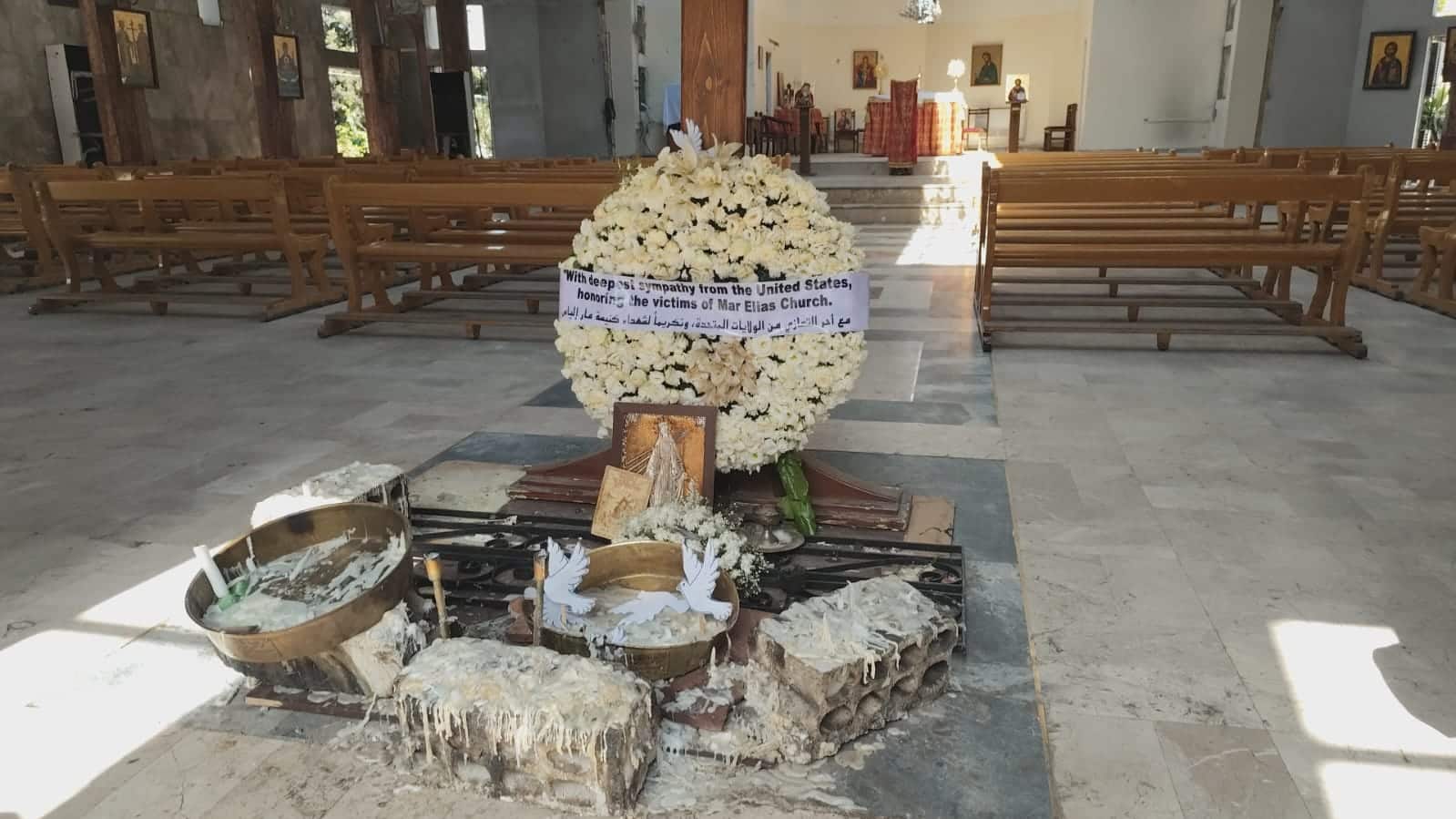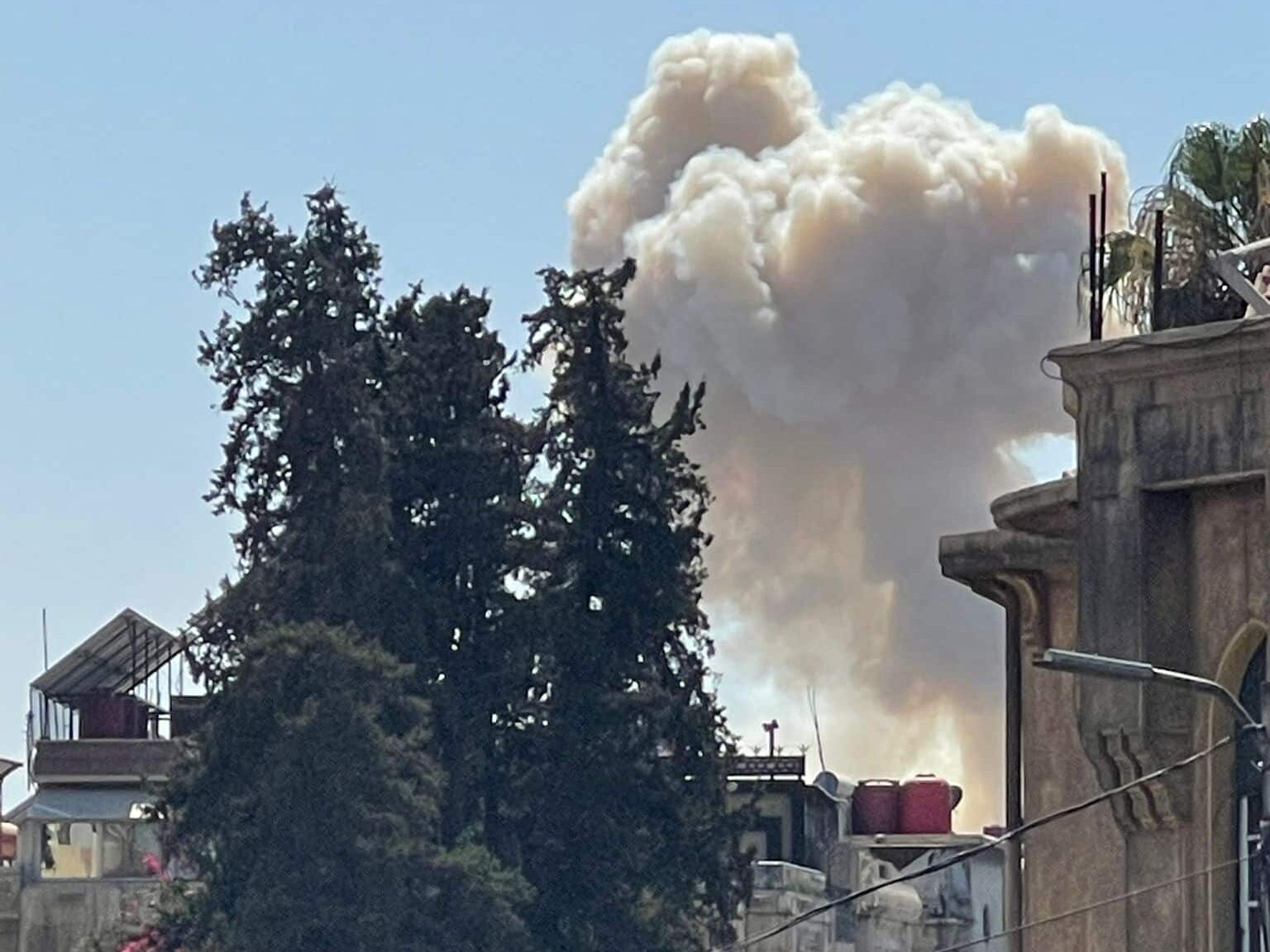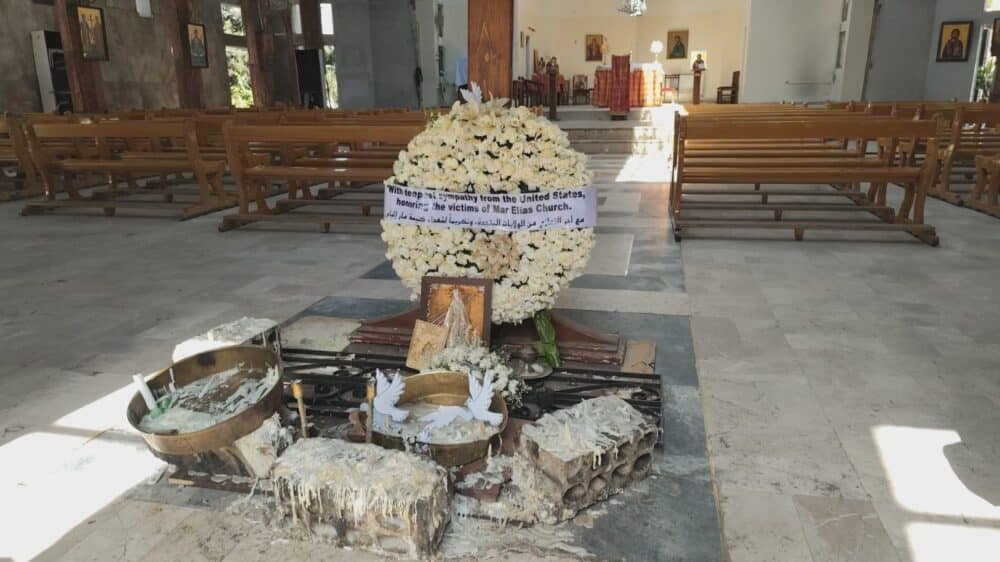
For Anje and Anjoun
The horrific events in Sweida and the subsequent Israeli bombings in Damascus have once again laid bare the deep fragility of a Syria still mired in instability. The wounds of war and the lingering fear are etched into the hearts of its people. Two of our colleagues, Andrea Avveduto and Giacomo Pizzi, recently came face to face with these realities during a journey that took them from Damascus to Knaye, in the province of Idlib. Here is the story of their journey.
When Israeli bombs struck the Ministry of Defense, Damascus was full of life. Tourists—mostly Syrians now living abroad—once again filled the Umayyad Mosque, where the head of John the Baptist is kept. They return for the summer holidays to visit Damascus, stroll through Aleppo’s souks, which are slowly coming back to life, or to reconnect with family and friends they haven’t seen in over a decade. Few come back for good, but many are curious to see whether the welcoming messages that light up the passport control panels at the Lebanese border are being honored:
“Welcome to the new Syria, your motherland. Now let’s rebuild it together.”
Promises like these, however, are quickly shattered by miles of ruined buildings, wrecked and decaying vehicles. Electricity remains unreliable, and water is still not a given, managed by factions and local groups who must strike ever-precarious deals with the new government under Al-Sharaa.
Buildings and homes can be rebuilt—and some already have been. With the right investments, electricity and water could return too. We hold onto that hope, especially as we walk through streets crowded with people carrying colorful bags, going from shop to shop. That hope—the one we place in every project we launch here—is what we see reflected in their eyes.
And yet, tragedies like the brutal killings in Sweida remind us of a painful truth: trust is still missing, and people don’t feel as safe as it might seem.

Trust is something that must be rebuilt slowly, and it’s hard to solidify under a government whose long-term political and social strategies are unclear—especially for many citizens belonging to religious minorities. Just a few kilometers from the Turkish border lie two villages—Knaye and Yacoubieh—where the fragility of state promises becomes visible: in the graffiti on church walls, in the hurried steps of people trying to reach someplace safe. Here, the small Christian minority endured years of hardship—even during the Assad regime. Always beyond government control, the area of Knaye and Yacoubieh was subjected to relentless repression by radical groups. Al-Nusra, ISIS, and various rebel factions took turns in controlling this territory, imposing harsh and repressive rules.
Since Assad’s fall and the country’s attempted reunification, these same groups now promote a policy of tolerance. “They’re not the same as before,” says Josif, a farmer born and raised in Knaye who never left. “Their roots are the same, but their mindset has changed. If they truly want to govern, they have to provide stability and security. That’s why they’re protecting us now.” And yet, Christian women still choose to wear the veil—“for safety.” Priests still walk cautiously in their clerical robes on the way to churches where, for now, crosses are once again on display. People don’t trust the promised change, and they continue to fear the worst.
“We’re just tired of war,” says Miriam, a sixteen-year-old Armenian girl who dreams of becoming a pharmacist. “There’s never any peace. Even now, we’re worried about what’s happening.”
Only a month has passed since a suicide bomber walked into the Mar Elias Orthodox Church in Dwela’a—just 15 minutes from the Old City—killing 25 people and injuring dozens more. Among the victims was Anjie, a 15-year-old girl who had gone to Mar Elias that June evening to light a candle and pray before her school exam the next day.
We knew her. Over the years, we’ve supported her family by helping them access medication.
“She wasn’t even supposed to be there,” her father tells us. “She usually went to another church to pray, but that night, to save time, she chose Mar Elias because it was closer.”
Anjie was struck four times by bullets fired by the attacker before he even entered the church.
Now the family lives in fear and is asking for protection.
“We’re scared, and we don’t trust the government,” the father says, “even if they’ve now stationed police officers outside churches during Sunday services.”
Al-Sharaa’s promises of protection don’t reassure Nabila either—she’s the aunt of little Anjoun.
“There’s always this doubt,” she says, “that some government officials might be directly involved, even if they publicly distance themselves and speak of unity and peace.”
Anjoun lost his father in the Mar Elias attack. His mother tells us he keeps looking for him. He still waits for the ice cream they were supposed to share after that evening’s prayer. He never wants to leave his mother’s side.
It’s only been a few days since he managed to return to school after nearly a month of absence. Anjoun attends the kindergarten in Tabbaleh, run by the sisters and supported by Pro Terra Sancta in its work to help families in need. It’s a familiar environment, and here—at least for brief moments—Anjoun seems to rediscover a bit of serenity. But this is only the beginning of a long and painful journey of healing, necessary for life to begin again.
To Anjoun’s mother and Anjie’s family, we make a promise: we will not leave you alone. We will continue to support you, but above all, we want to be present—to walk alongside you through whatever comes next. We do not want you to face this alone.
Right now, we realize that beyond material aid, the greatest help we can offer is this: to create spaces for human connection, to begin rebuilding trust, and to stand by those who no longer have any—so that hope doesn’t die.
